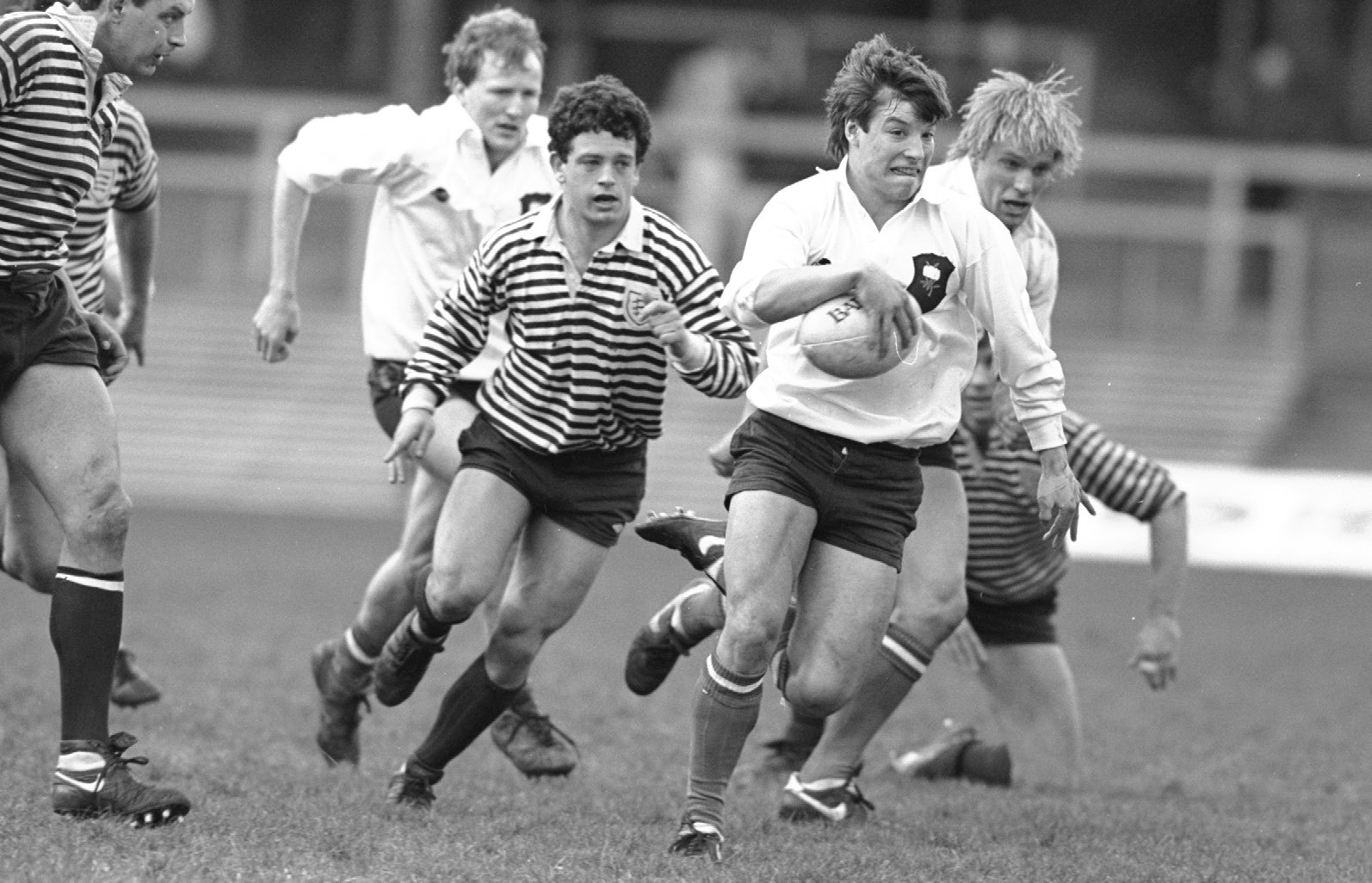 As the disappointments of the Six Nations fades into memory, club rugby comes back into focus as we approach the business end of the season for all. The Premiership has a similar feel about it, as the same old group fight for the play-off places and the usual crowd dice with relegation.
As the disappointments of the Six Nations fades into memory, club rugby comes back into focus as we approach the business end of the season for all. The Premiership has a similar feel about it, as the same old group fight for the play-off places and the usual crowd dice with relegation.
The only difference this year is that it is almost a foregone conclusion that it will be London Welsh who will take the drop and that Newcastle will gain promotion – and that has little or nothing to do with the Tyson Keats Fiasco.
The long delay in confirming the Welsh promotion and the financial divide (highlighted in this paper last week) had a
far-reaching effect on the prospects of the club’s possible survival in the Premiership and made them a virtual certainty for relegation even before the five point deduction.
Just as Newcastle’s parachute payment and the extra money they receive as a foundation member of the Premiership makes them a virtually unassailable opponent for their Championship rivals, therefore almost guaranteeing a bounce back to the top tier.
The strange thing is, the mystifying financial arrangements of the Premiership have been known to many and yet no one has been prepared to challenge or question why such a biased system has been allowed to continue for virtually 20 years.
The RFU, despite being the sport’s governing body, seem to believe that it is up to the clubs how they distribute the funds they are given by the Union, even if it is grossly unfair for all the clubs that were not at the top of the game when the Premiership was first formed.
It is a form of financial ring-fencing that almost guarantees that any club that manages to get to the Premiership are massively disadvantaged in their efforts as they would be forced to invest millions of their own money just to have any chance of staying there.
Meanwhile, the relegated team have such a massive financial advantage over the other Championship clubs, it is virtually a dead cert they will to return to the Premiership – unless their ‘sugar daddy’ owner takes the parachute payment and leaves the club, which has happened occasionally in the past.
As such it has made entry to the very top of our league pyramid flawed, so much so that a number of clubs now see the Championship as their ultimate goal.
Many of the clubs at National level have semi-professional set-ups but the vast majority don’t have enough backing to provide the sort of investment that it takes not only to reach the Premiership but also to build the infrastructure that is now expected at a premier venue.
The Championship doesn’t have a minimum entry standard so any club can enter it and, as soon as they do, they become eligible for RFU funding which while being nowhere near what the Premiership gets, is still a substantial sum.
For some, the Championship and its funding (the first level at which the RFU provide any funding whatsoever) is enough to fulfil those clubs’ ambitions with little or no major financial risk, so the last thing they want is promotion, particularly as many enter into dual registration agreements with Premiership clubs that help to provide them with the players they need to remain there.
Dual registration is a double-edged sword for the Championship clubs, but it has its benefits for young academy players as it provides vital game time and experience for those who would otherwise spend most of the time benching or not playing.
It also allows the Championship clubs to field players that they otherwise could not afford to contract. They are also informed about young players leaving academies who have just failed to reach the necessary standard of a Premiership club.
But this all comes at a cost to the Championship clubs.
They know, should they get promoted, the Premiership clubs will take back academy players on loan and the newly- promoted club will be forced to buy expensive new players, most probably from overseas in the brief time between confirmed promotion and the start of the new season.
Despite the restructure of the Championship play-off, the champion club are not known until the middle of May and they still have to pass the premier entry audit before knowing if they can be promoted.
The problem for Championship and other lower league clubs is that the majority of talented young players are tied to Premiership clubs through the academy system so the Championship and the rest of the game have no access to any of those players until they are ‘released’ at the end of the academy period having failed to make the grade.
It may be a bit radical, but if the RFU really want to stop the yoyo of promotion and relegation they should insist that the Premiership changes its financial practise to ensure that all clubs have equal direct funding, if a ‘sugar daddy’ wants to add to the pot or the club can raise extra money, so be it.
They should also move all academies to universities, thereby removing all young talented players from the control of the Premiership and open dual registration to all National league teams.
That could have the effect of giving all young players the experience of club rugby outside the professional game and could also help in the retention of more talented athletes who are late developers and have no pathway to the professional game having missed the boat when younger.
These ‘overlooked players’ are a great loss to the game and England’s international aspirations.

1 Comment
You must be logged in to post a comment Login
Leave a Reply
Cancel reply
Leave a Reply
You must be logged in to post a comment.
























Michael Browne
12 April 2013 at 5:43 PM
Spot on Jeff, spot on. My club, Moseley, if they develop a good young prospect, he’ll end up going to Worcester (the nearest Premiership club). Why can’t he stay at Moseley, it’s just totally unfair and biased to the Premier clubs.